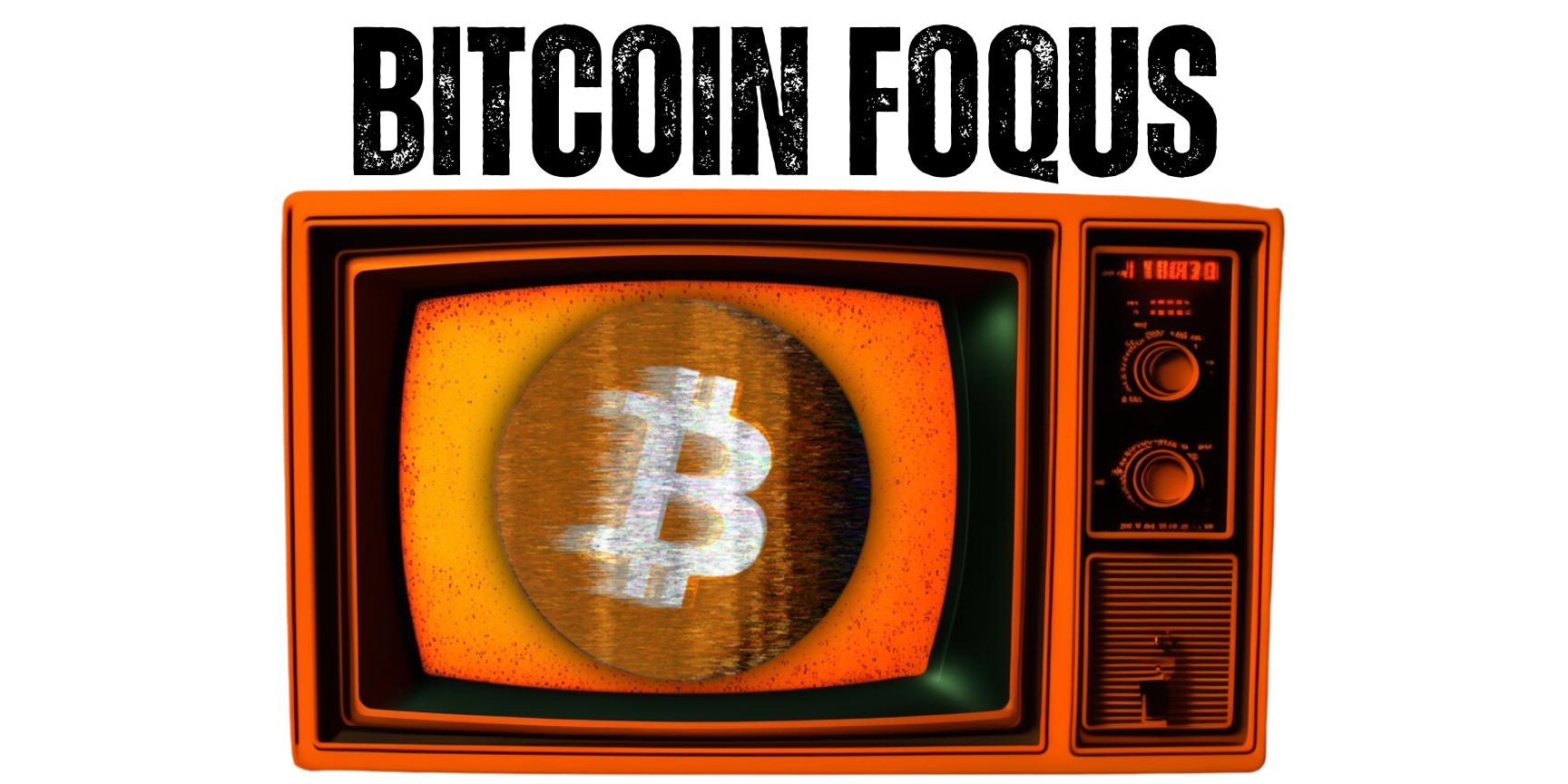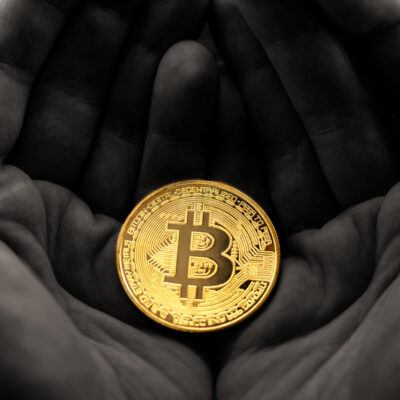
Bitcoin has had a serious run up since its invention in 2008. If you had invested just a few hundred dollars a decade ago, you’d be a millionaire by now. The trouble is – you didn’t. Now you have, what I call, Bitcoin Time Machine Regret, and you want to find the next Bitcoin so you can definitely become a millionaire this time around.
The reason I know this story well is because I lived it, and I hear my friends talk about it. I’m over it though, and I hope I can help you get over it too. There’s still plenty of time to grow your wealth with Bitcoin. You’re still early!
These days, I don’t worry about finding the next Bitcoin because we still have the real thing – the real Bitcoin! After thousands of hours of podcasts, books, articles, and videos, I’ve come to the conclusion that Bitcoin was a one-time invention, and there will never be another Bitcoin.
I Found The Next Bitcoin!
If you really want to invest in the next bitcoin, then you need to start buying sats. Sats are the next bitcoin.
What’s a sat?
“Sat” is short for “satoshi”, and a satoshi is the smallest unit of bitcoin. To be clear, this is an inside joke among bitcoiners. Because the word sat isn’t immediately recognizable as a subunit of bitcoin, people often think it’s a different cryptocurrency.
To be clear, a sat is just a fractional unit of a bitcoin. 100,000,000 sats = 1 bitcoin. Just like cents and dollars are different words, but 100 cents equals one dollar.

There will never be a “next bitcoin”, and I’ll get into why in the rest of the article. Bitcoin is here, so if you want to own digital money, you should buy bitcoin. Nothing else is worth your time or attention.
Unit Bias
However, you probably have this nagging feeling like you’re too late to Bitcoin, so it’s not worth buying. The bitcoin rocket ship already left, so you need to catch the next one. “Oh, Dogecoin is only $0.30! What if it goes to $50,000 just like bitcoin?!”
To satisfy that unit bias urge, many bitcoiners recommend thinking in terms of sats instead of bitcoin. Instead of buying a fraction of a bitcoin, you’re buying millions of sats at a time. You can be a sats millionaire for less than $1,000 USD! This way, you fight the urge to buy garbage just because it’s “cheap” (due to the opportunity cost, it’s not really cheap).
Sats Are Just Easier To Use
However, there’s a serious aspect to this as well.
Sats are just easier for price denomination. Would you rather say, “Point zero zero zero one bitcoin” or “ten thousand sats”? Obviously, the latter is easier. Plus, as the price of bitcoin goes up, denominating in sats will become much easier over time as the number of sats required to purchase something becomes smaller and smaller. In the past, it might cost you “One point three million sats” to buy something, but that same thing might cost you, “thirteen hundred sats” in the future.
It’s also unlikely that people will be making daily purchases that cost a whole bitcoin or more, so you aren’t going to hear people talking about something costing, “one point three bitcoin” very often. In fact, at this point most people will never own a whole bitcoin, so your average person wouldn’t need to be denominating in bitcoin regardless.
Sats are better for price comparison too. With a fraction of a bitcoin, it’s hard to compare, “point zero zero two five bitcoin” vs, “point zero seven five bitcoin”. Instead, it’s much easier to compare, “two hundred and fifty thousand sats” vs, “seven point five million sats”.
Because sats are easier to look at, think about, and use, sats are the future. Sats are the next bitcoin!
Related Content
What Are The Chances Something Outpaces Bitcoin Adoption?
In the race to global adoption as a digital currency, Bitcoin has already lapped everything else out there so many times that it’s not even close. Here are just some of the cool things people are currently doing on Bitcoin. Not promises. Not projections. These things are happening right now.
- publicly traded mining companies (Hut 8, Bitfarms, Marathon, Riot Blockchain)
- non-bitcoin publicly traded company balance sheets (Tesla, Microstrategy)
- off grid mining companies to mine and hold bitcoin (Upstream Data, Standard Bitcoin)
- podcasting 2.0 with micropayments
- remittance payments
- online gaming
- national currency
- non-internet access to Bitcoin (Blockstream Satellite)
- inspired countless bitcoin-only writer, bloggers, and creators
Hypothetically, if a coin were going to overtake Bitcoin in adoption, it wouldn’t happen overnight. You’d see a trend. You’d see the train coming. Bitcoin didn’t rocket from $0.01 to $50,000 in an instant. It happened over the course of 12 years, and there were many opportunities along the way.
Look For The Signs (There Are None)
If some other cryptocurrency was going to become the new Bitcoin, there would be signs to follow. You’d see mining companies pop up. You’d see large investors making announcements. You’d hear about it regularly on MSM. People would have something smart to say about it other than Number Go Up.
Right now, there’s just no other cryptocurrency out there that has this level of infrastructure and capital behind it. If you’re just an average person who wants to protect the value of the money they earn, then Bitcoin is the only thing worth considering.
Tweet: Top 10 Coins From 2018 Versus 2023 (Priced In Bitcoin)
What About All Those Other Bitcoins Out There?

The Bitcoin I talk about on Bitcoin Focus is the original Bitcoin, with the ticker $BTC. However, because Bitcoin is open source, it’s actually possible to copy the entire history of Bitcoin and simply make a “new bitcoin”. That’s the nature of open source. Anyone can contribute, but also anyone can copy and use it for whatever they want.
You could call this New Bitcoin whatever you want.
There have been a lot of forks over the years, all with a cool variation on the name like Bitcoin Diamond, Bitcoin Gold, and Bitcoin Lambo, and so on. Other projects, such as Litecoin, took Bitcoin’s code and started a completely new project.
You Can Copy Bitcoin But You Can’t Copy Its Network Effect
The trouble with making a new coin is that although you are able to leverage Satoshi’s work and use the Bitcoin code, you don’t automatically get the users too. Because your code is “forked”, people running the original Bitcoin code won’t be validating your transactions. Miners won’t be mining your Bitcoin blocks either. Bitcoin’s network effect occurred organically over more than a decade, and it cannot be spoofed or bought.
Even a “successful” fork like Bitcoin Cash has a tiny user base and transaction volume. In the video below, you can see that the amount of value moved on chain per second is a fraction of what Bitcoin (BTC) does. Litecoin is even worse (the others are not Bitcoin forks).
With the exception of Litecoin above, you’ve probably never heard of the forks I mentioned above, because nobody uses them for anything but trading. They exist, but only as a means for people to swap various coins with other traders, hoping to catch the pump at the right moment, then dump for a nice profit, and get more bitcoin.
Playing The Altcoin Casino

There’s no reason to own any other cryptocurrency other than to speculate on price. The main use case of the vast majority of coins out there is gambling. If you like gambling, then you can play the altcoin casino. Unfortunately, companies like Coinbase, Kraken, FTX and others push this narrative and encourage people to trade without actually thinking about what or why they are trading.
Could some random cryptocurrency eventually become the next bitcoin? Sure – it’s possible – the trouble is, there are more than 10,000 coins to choose from right now. Are you sure that you have the analytical skills to find that one unicorn? 99.9% of coins will straight up fail. Only a small percentage will survive more than a few years. Maybe there’s an outside chance that one single project will come out of left field and overtake Bitcoin in market adoption.
Now which one of those 1/10,000 coins are you going to go all-in on?
Maybe if you were really into cryptocurrencies and did some deep-dive research into a few specific coins, then you could justify putting a certain amount of money into a token because you think it’ll be useful for something in the future.
Utility Tokens VS Universal Money
Personally, I look at altcoins through a 2-option lens.
- Is this a utility token?
- Is this money?
If the thing you are looking at is a utility token, i.e. a token that’s supposed to be used for a specific purpose, like an oracle, or some specific type of payment situation (remember Dentacoin for Dentists? lol), then I ask myself, “Do I really need a token to pay for this? Why not just use money?”
If the thing you are looking at is supposed to be money, with no other utility, then I ask myself, “What are the chances of this becoming better money than Bitcoin, and how far in the future might that happen?” For me, the answer is always that bitcoin is here, and bitcoin is better.
The reality of the situation is, most people buying various coins are not asking questions like these, let alone doing any amount of reasonable research. They are doing things like searching for “top 10 altcoins” and browsing Reddit or Twitter to find where the hype is. They are throwing a few hundred dollars at this or that thing because it has “awesome tech” or a “great team”, and just hoping that the thing 100x’s in the near future so they can cash out to fiat.

Rather than starting out at the altcoin casino, why not make a concerted effort to actually understand the biggest, most used, most trusted cryptocurrency out there: Bitcoin. Learn how it works. Learn why it’s valuable. Buy some Bitcoin and use it. Get at least the basic stuff down. Then do start your research on other stuff and see how it compares.
What If I Found An “Interesting Project”?
Inevitably, after all that I’ve said above, a few people will still have their mind set on a coin they think will take over the world at some point in the future. Maybe it’s got super fast and cheap transactions. Maybe there’s a rumor it’s backed by a bank in Singapore, or that Audi is working with devs to merge AI and blockchain into an electric car.
Whatever the deal is, you feel like you have some kind of inside scoop and your coin is going to the moon.
First off, consider where you got the information. If you got it on Reddit, then you’re a sucker. Anything online that just pops into your social media feed is the end of the food chain. If there was real “insider” information, by the time it reaches Reddit, the trade has already been made. It’s highly unlikely that you’re going to get in on the ground floor of anything by using surface-level internet research.
On the flip side, it’s very likely that you and a bunch of other people are getting professionally scammed. Listen to the first few episodes of Shitcoin Insider. I can’t remember which one it was, but the “Insider” cohost talks about getting paid to pump coins in cryptocurrency forums.
At Least Be A Proper Shitcoiner
Still don’t believe me? That’s fine, but DO YOUR OWN RESEARCH. I mean, actually put in the work and do some investigation.
The thing about Bitcoin is that you can actually do research on it. There are tens of thousands of hours of educational podcasts. Thousands of hours of technical tutorials and even free courses in Bitcoin Basics and Austrian Economics.
I encourage you to do the same with your coin. Actually understand what you are buying. Sometimes a good strategy is to get some skin in the game, then do the research, and that’s fine, but don’t go all-in until you actually figure out what you’re buying.
As Matt Odell frequently says, “If you’re going to be a shitcoiner, at least be a proper shitcoiner”.
In other words, use the thing you’re buying. Withdraw it to your own wallet. Try to buy something with it. Run your own node. Send some to yourself. Look for specialized forums and groups just for your coin (not general cryptocurrency groups). Find educational material about it. Ask questions.
While you’re doing all this, in the back of your mind keep thinking about the question, “Why am I buying this coin?”.
Perhaps you’ll find the answer to that question.
What About Ethereum?

Some people say that the next Bitcoin is actually Ethereum. They say that Bitcoin is “old tech”, and wastes too much energy, or that storing value on a timechain is boring – a cryptocurrency should do something like smart contracts!
I have a two-part response to the idea that Ethereum could be the next Bitcoin.
1. Ethereum Is Not Good Money
From the beginning, bitcoin was meant to be money. It was meant to be a digital representation of value that people could send directly to one another, without an intermediary. So far, it’s achieved this goal. Bitcoin was meant to be money, and it’s currently doing that.
Contrast that with Ethereum. At first, it was supposed to be a “world computer”, where you could build any type of application on top of it. Then, it was supposed to be a platform where you could launch your own ERC-20 crypto token. Now, it’s a place where you can gamble on various “defi tokens”, or perhaps you can invest in some rare images of rocks.
Now, with the launch of Ethereum 2.0 (Soon™), the new buzzword is Ultra Sound Money.
To me, it’s not exactly clear what Ethereum is supposed to be or what it’s supposed to be used for. It seems like there are competing narratives that come and go.
What is clear to me is the Ethereum is not good money.
One of the main properties of good money is durability, and I think that Ethereum fails this test. Its total supply and issuance schedule are not clear and has changed over the years. Knowing this, it’s hard to know without a doubt that these things will not be changed again in the future.
Ethereum Is Centralized
Right now, Ethereans are very proud of their ultra sound money narrative, in that they are going to burn ether to reduce the amount of ether in circulation after their migration to Eth 2.0. If you read between the lines, what you realize is that this decision was made by a centralized organization, and not part of the original plan.
What happens if, in 5 years, they decide this was a bad decision and they then decide to add more Ether to the ecosystem instead? As a basic user, you’d have no control over this decision.
As I write this article, in order to stake and become a validator in Eth 2.0, you’d need 32 $ETH. That’s a cost of over $100,000, which is out of the reach of most people. Contrast that with Bitcoin, which costs about $200 to build and run a node, and you have an equal voice with every other node out there. Someone with $1mil in bitcoin cannot influence the protocol any more than someone with 100 sats.
In my opinion, that makes Ethereum a centralized organization, and ether has too many unknowns to hold as reliable money.
2. Buying Ethereum Is Like Buying Shares In A Tech Company
Ethereum has a founder, a foundation, and a roadmap. They issued a 70% premine which was distributed to insiders, kind of like angel investors. Then they had their ICO (Initial Coin Offering), kind of like an IPO. Their “shares” were never meant to be money. They were supposed to be tokens to use in order to work within the network, i.e. the method of using the “world computer”.
You can trade these shares on an open marketplace, and even buy goods or services with these shares. In that sense, ether does work as a money. However, I’m confused about why the price of ether should continue to rise. With most technology, it becomes cheaper to use over time, so shouldn’t it get continually cheaper to run the Ethereum world computer as technology advances?
Regardless, it seems to me that the main idea of buying Ethereum was, and currently is, to buy and hold shares in the “Ethereum Company”, then sell them for fiat or bitcoin when the price gets high enough.
Ether Is For Gambling, Not Investing
Nobody is putting ether in their treasury. Nobody is denominating their wealth in ether. Nobody is sending ether to their family overseas. Nobody is exchanging goods or services for ether (with the exception of the NFT craze right now – see below).
- Cryptokitties > Hype > Dead
- ICO > Hype > Dead
- Defi > Hype > Dead
- NFTs > Hype > Dead
I’m not denying the possibility that the price of ether will rise over time. Its gains may even surpass Bitcoin! Anything can happen. However, Ethereum is not Bitcoin. Its network doesn’t operate the same way. Its purpose is not the same. If you believe in the Ethereum vision, then you can invest in shares of the company and cash out when you reach your goals.
Final Thoughts
Bitcoin was a one-time invention. Bitcoin will work, or it will not. If Bitcoin catastrophically fails, the whole market will tank and it will be years until anything recovers, if it ever does.
If a new Bitcoin does emerge at some point in the future, it will not become a global store of value and medium of exchange overnight. There will be years of development of the protocol and infrastructure.
For most people, it makes sense to just focus on Bitcoin and ignore all the other noise in the market.
Further Education
Frequently Asked Questions
What Is The Next Big Thing After Bitcoin?
There will always be next “big things”, as the world changes and new things are invented. Some will be investable opportunities, and some will change the world. Whether or not you get in early on a future investment has nothing to do with whether or not you should buy bitcoin, and you should treat those two ideas as separate questions.
What Coin Should I Buy Today?
In a world where there are 10,000+ altcoins and more being launched every day, unless you have done several thousand hours of research, it’s unlikely that buying any coin other than bitcoin would be a smart investment.
Will There Be Another Bitcoin?
There will never be another bitcoin because bitcoin was invented at a time when 99.9% of people had never heard of cryptocurrency, let alone thing it would work on a global scale and be a profitable investment. Any 10,000x coin someone buys into these days is either pure luck, or they have insider knowledge and are part of the premine.
What Is The Next Bitcoin-Like Investment?
There will always be investment opportunities that have massive returns, whether or not they are cryptocurrencies are not. Nobody knows what those investments will be until after the fact. To find the next non-crypto investment with parabolic returns like that of bitcoin, you need to have specialized knowledge of a specific industry and unwavering commitment to invest a large portion of your portfolio, then be able to hold through wild swings to the upside and downside. Holding bitcoin from 2009 until 2023 has not been an easy ride!
What Coin Will Explode In 2023?
It’s impossible to predict which coins will explode in any given year because most coin pumps are not based on any fundamental use case. Most are pumped by influencer promotional campaigns, insiders buying and pumping their bags on twitter, wash trading, and other schemes. It’s a total gamble what will outperform next cycle, which is why many bitcoiners refer to investing in non-bitcoin assets the shitcoin casino.


















 Is Bitcoin A Cult?
Is Bitcoin A Cult?
Leave a Reply